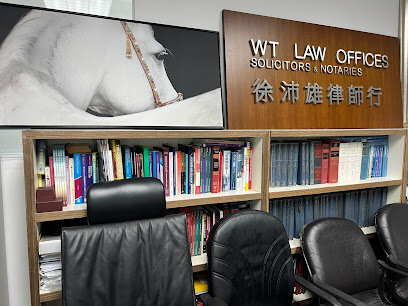Best State, Local, and Municipal Law Lawyers in Hong Kong
Share your needs with us, get contacted by law firms.
Free. Takes 2 min.
Or refine your search by selecting a city:
List of the best lawyers in Hong Kong
About State, Local, and Municipal Law in Hong Kong
State, Local, and Municipal Law in Hong Kong primarily deals with regulations and legal frameworks that govern local governance, public administration, and the execution of local policies within the region. Being a Special Administrative Region of China, Hong Kong operates under the “One Country, Two Systems” principle, granting it a high degree of autonomy in legal matters, except in defense and foreign affairs. This complex legal landscape involves an intricate balance between local ordinances and overarching state laws, addressing issues such as land use, local government operations, public welfare, and community services.
Why You May Need a Lawyer
Legal advice in the field of state, local, and municipal law might be essential in various scenarios, including:
- Disputes over municipal regulations like building codes or zoning laws.
- Challenges involving local government decisions affecting public or private land use.
- Issues related to public services administered by local authorities, including water supply, public transport, and waste management.
- Compliance and interaction with local laws for businesses, such as licensing requirements and health regulations.
- Resolving matters pertaining to community welfare and social services.
Local Laws Overview
Key aspects of the local laws relevant to State, Local, and Municipal Law in Hong Kong include:
- Public Ordinances: Encompass various laws like the Public Health and Municipal Services Ordinance, which governs public health and safety standards.
- Metro Development Plans: These documents guide urban development and land use planning, impacting businesses and residents alike.
- Environmental Regulations: Laws concerning waste disposal, environmental conservation, and sustainability initiatives by local governments.
- Public Procurement and Contracts: Legal processes and requirements for government contracts and tenders affecting local businesses.
- Local Governance Framework: Structures that define the roles, powers, and functions of local councils and administrative bodies in Hong Kong.
Frequently Asked Questions
1. What should I do if I have a dispute with a local government department in Hong Kong?
Start by seeking advice from a lawyer experienced in municipal law for initial consultation on the nature of the dispute, your rights, and possible legal actions.
2. How are building codes enforced in Hong Kong?
Building codes are enforced by the Buildings Department and involve adherence to the Buildings Ordinance, which ensures safety and suitability of structures.
3. Are there specific laws for environmental protection at the municipal level?
Yes, various laws address environmental protection, implemented by local bodies, including waste management and air pollution control ordinances.
4. Can I appeal against a local government decision affecting my business?
Yes, you can appeal through legal channels or administrative appeals processes as provided by local governance frameworks.
5. What avenues are available for resolving disputes over local taxes and fees?
Disputes can be addressed through legal representation, negotiating with the local tax authority, or seeking redress in the courts.
6. How does the Hong Kong government handle public complaints against municipal services?
The Office of the Ombudsman handles complaints related to maladministration by public bodies in relation to municipal services.
7. How are community welfare and social services regulated?
Regulations are enforced by the Social Welfare Department under specific ordinances addressing welfare policies and services.
8. What is the role of District Councils in local governance?
District Councils act as advisory bodies to the government on district administration, including public facilities and socioeconomic development.
9. Is it necessary to get legal advice when setting up a business regarding local laws?
Yes, particularly for understanding licensing, health, and safety regulations specific to your business location and type.
10. What are zoning laws, and how might they affect property development?
Zoning laws guide land use and development, detailing permissible activities and layouts, affecting residential, commercial, and industrial properties.
Additional Resources
- The Department of Justice: Offers online resources and updates on local laws and legal systems in Hong Kong.
- The Buildings Department: Provides guidance and resources related to building codes and safety regulations.
- District Council Websites: Useful for localized regulations, public announcements, and governance details.
- The Law Society of Hong Kong: A professional association providing legal resources and lawyer directories.
- Office of the Ombudsman: Responsible for addressing public grievances against administrative decisions.
Next Steps
If you find yourself in need of legal assistance related to State, Local, and Municipal Law in Hong Kong, consider the following steps:
- Consult with a qualified lawyer specializing in municipal law to evaluate your case and provide initial guidance.
- Gather all relevant documents, proofs, and communications pertinent to your legal issue.
- Research potential legal aid services if financial constraints are a concern.
- Prepare for any legal proceedings by familiarizing yourself with the relevant laws and regulations.
- Maintain clear and comprehensive records of your interactions with local authorities or governmental bodies.
Lawzana helps you find the best lawyers and law firms in Hong Kong through a curated and pre-screened list of qualified legal professionals. Our platform offers rankings and detailed profiles of attorneys and law firms, allowing you to compare based on practice areas, including State, Local, and Municipal Law, experience, and client feedback.
Each profile includes a description of the firm's areas of practice, client reviews, team members and partners, year of establishment, spoken languages, office locations, contact information, social media presence, and any published articles or resources. Most firms on our platform speak English and are experienced in both local and international legal matters.
Get a quote from top-rated law firms in Hong Kong — quickly, securely, and without unnecessary hassle.
Disclaimer:
The information provided on this page is for general informational purposes only and does not constitute legal advice. While we strive to ensure the accuracy and relevance of the content, legal information may change over time, and interpretations of the law can vary. You should always consult with a qualified legal professional for advice specific to your situation.
We disclaim all liability for actions taken or not taken based on the content of this page. If you believe any information is incorrect or outdated, please contact us, and we will review and update it where appropriate.
Browse state, local, and municipal law law firms by city in Hong Kong
Refine your search by selecting a city.















